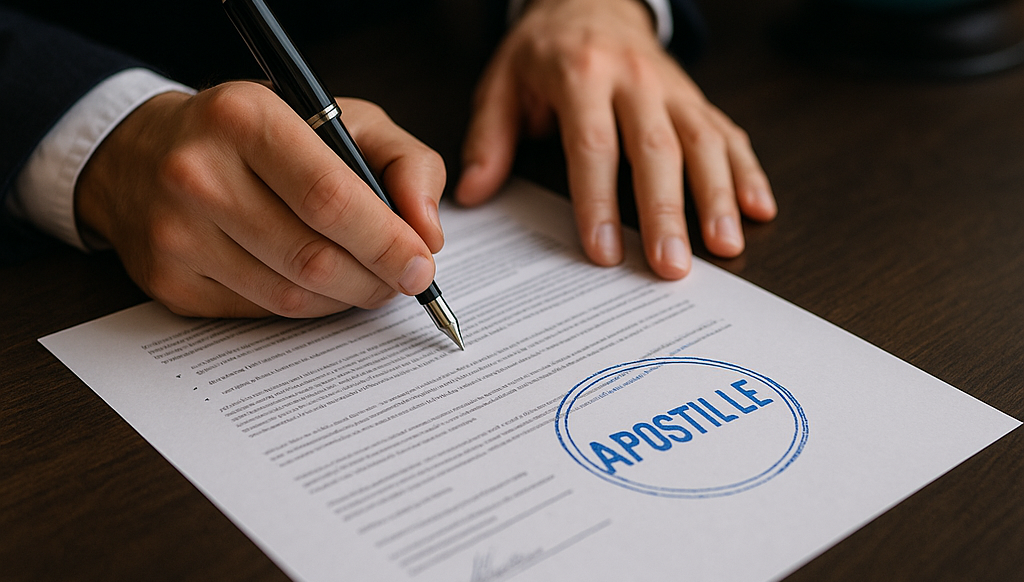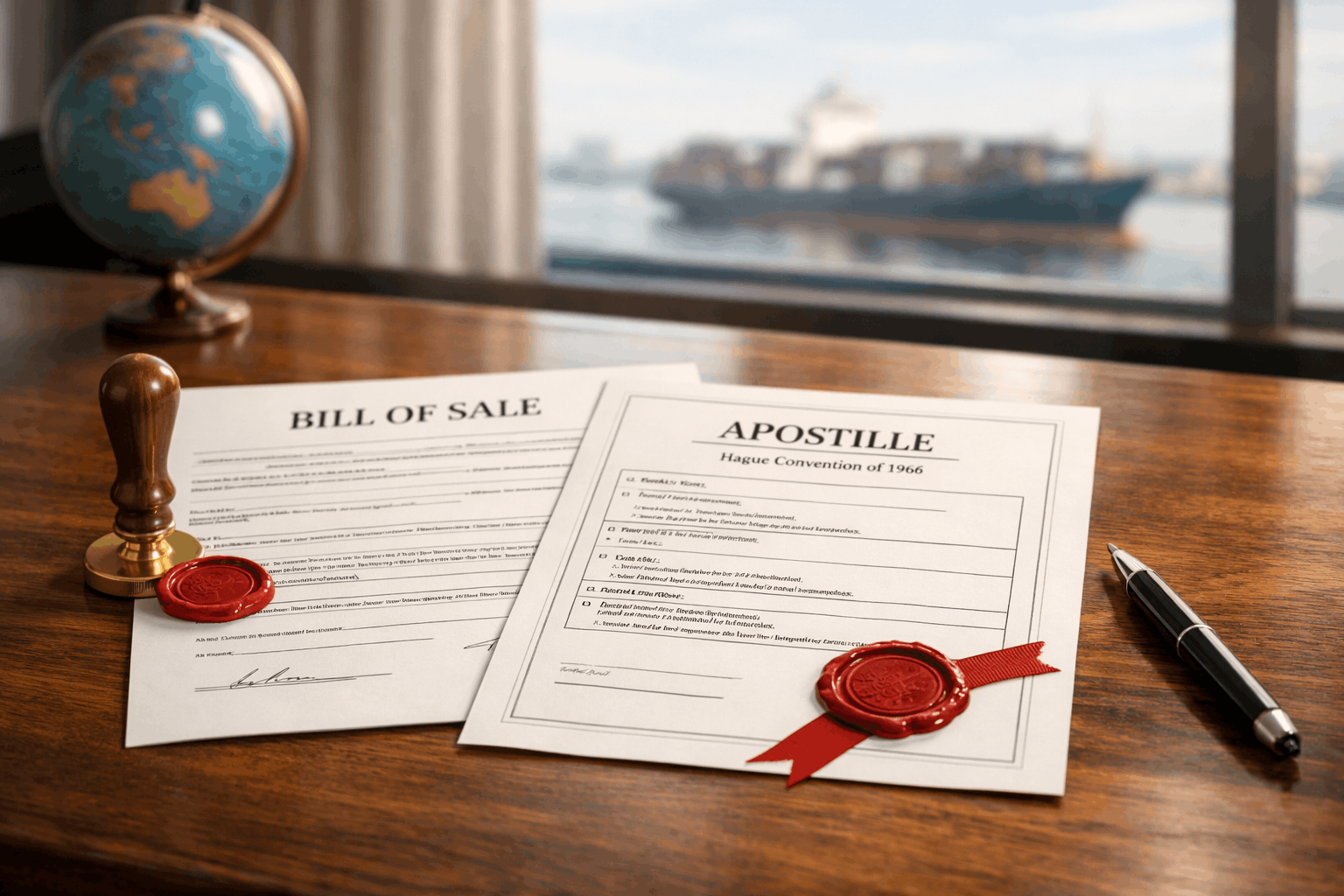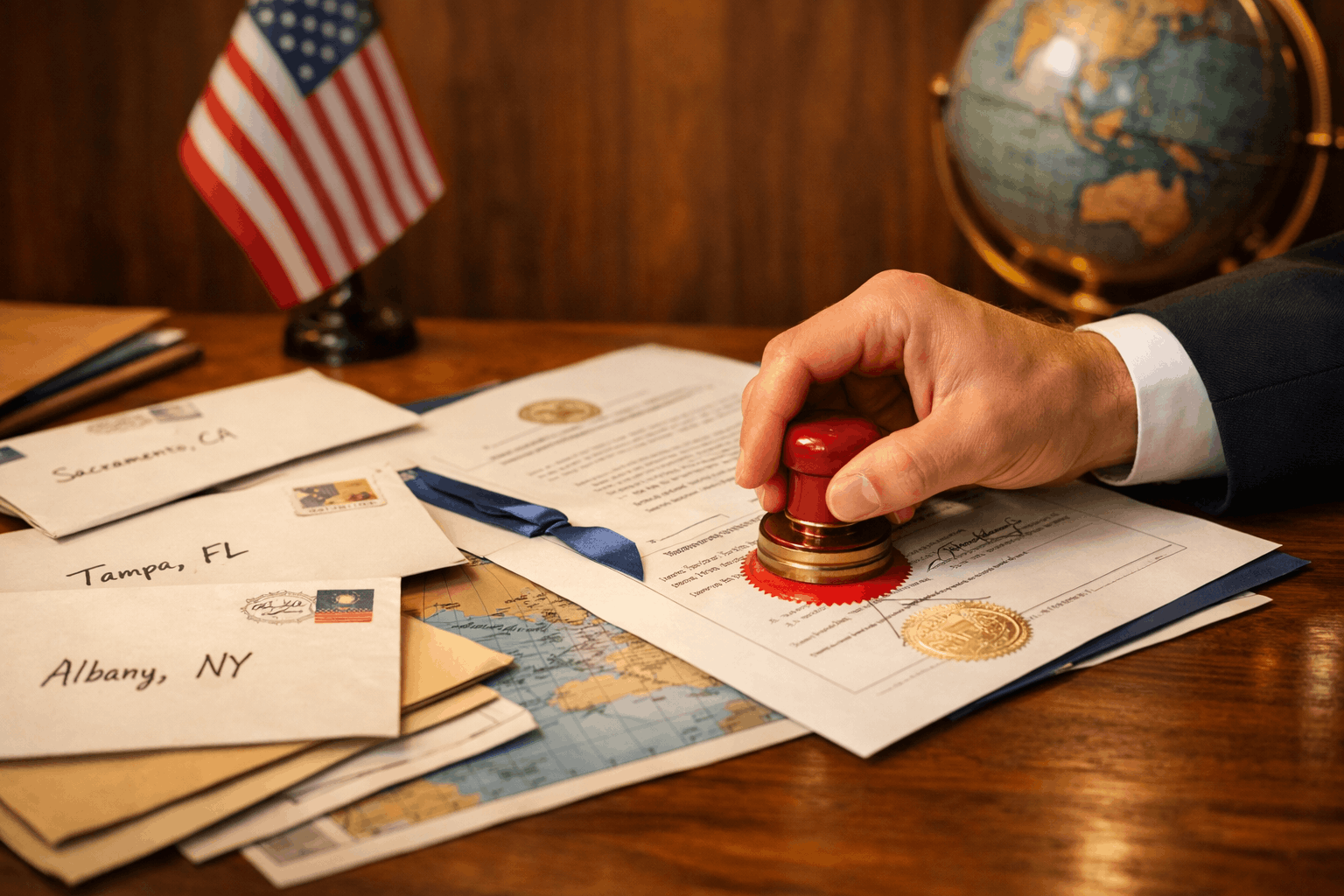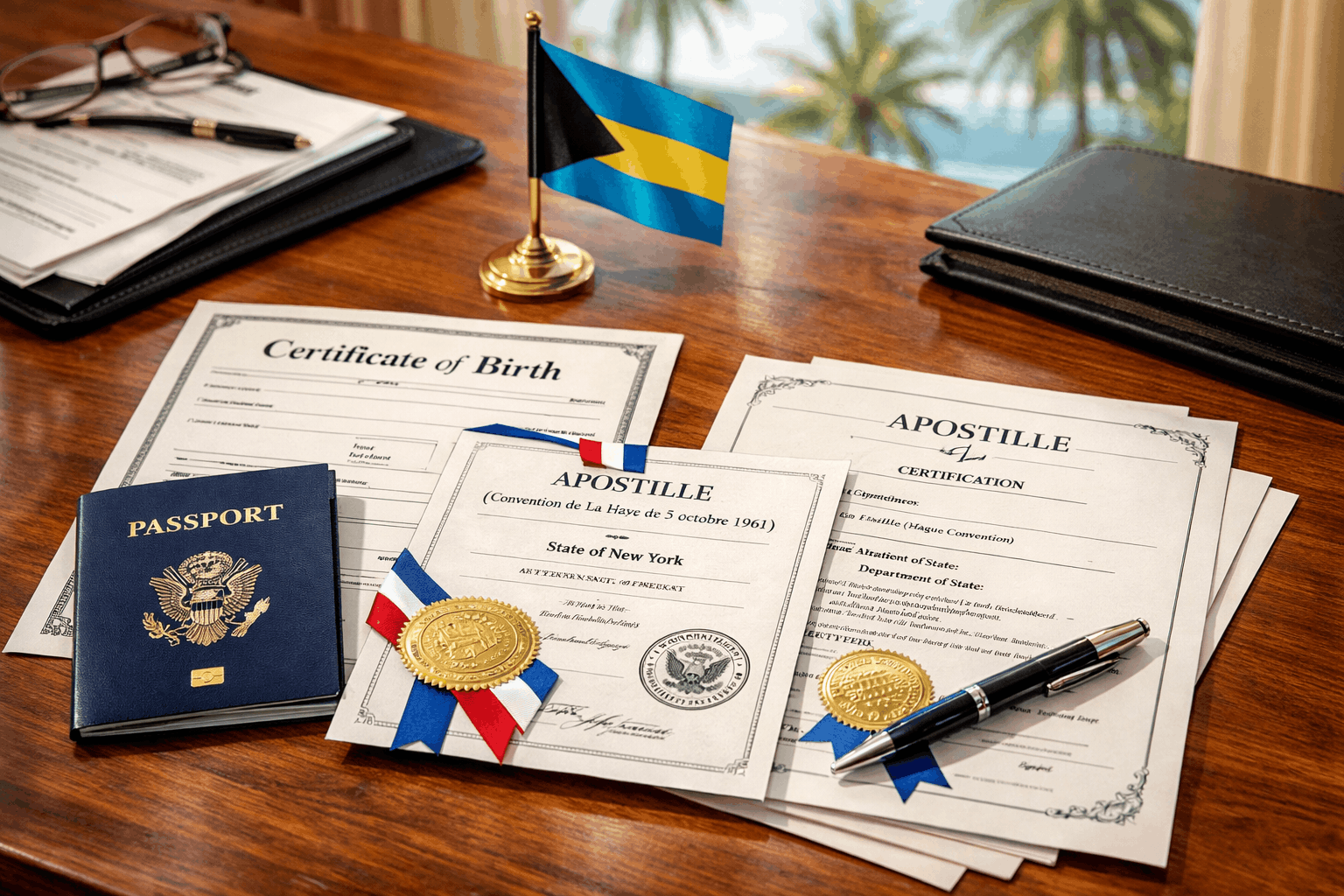
What Is a Corporate Apostille?
Your company lands a massive contract overseas, and now you’re probably looking into corporate apostilles for your U.S. documents to go global. What are these certifications exactly, and how do they affect the chance of the paperwork’s international acceptance? This post aims to offer you an overview of an apostille for business documents and how to get one without the headache. Stay tuned to turn your international ambitions into reality!
Understanding the Concept of a Corporate Apostille
Let’s first clarify what sets corporate apostilles apart from personal ones. In this section, we’ll explore what they actually are and why business documents require special handling to facilitate legal compliance and global expansion of U.S. businesses. Here’s what you should know:
Corporate Apostille vs. Personal Apostille
A corporate apostille authenticates business-related paperwork rather than personal records. These include articles of incorporation or board resolutions, as opposed to birth certificates or diplomas that serve individual purposes. Since corporate records hold significance for companies operating across borders, especially in major transactions and trades, they require more legal scrutiny.
Common Uses of a Corporate Apostille
It’s essential for unlocking international business opportunities. Having the company’s paperwork properly apostilled helps establish overseas branches, finalize global contracts, and comply with foreign regulations. Some activities that require one include business registration, account opening, and partnership setup.
Corporate Documents That Commonly Require an Apostille
Although not all business papers need an apostille, some frequently do. If you’re on the way to obtaining an apostille certificate for your company, it will be beneficial to look at the categories of corporate paperwork that often require apostille certification. Here are the most commonly requested documents:
Formation & Ownership Records
This category includes those that prove your company’s existence and its legal representatives. Essential records that should be named are the articles of incorporation confirming the entity’s formation, certificates of good standing verifying legal compliance, and shareholder agreements explaining ownership structure. Foreign officials need these items to validate your business in the U.S.
Financial & Transactional Documents
These encompass all that facilitates your company’s financial activities abroad. Examples include powers of attorney, board resolutions, banking records, and international contracts. An apostille for financial documents authenticates such papers for global use, allowing companies to grant authority, execute transactions, and conduct business in a foreign country with legal recognition.
Intellectual Property & Regulatory Filings
Apostilling records on intangible assets safeguards your company’s innovations. These papers can be patent filings, trademark registrations, licensing agreements, and compliance certificates. An apostille validates intellectual properties in foreign jurisdictions and proves regulatory adherence to international standards. You’ll find it significant when entering new markets and defending rights globally.
How to Obtain a Corporate Apostille in the U.S.
Learning how to apostille corporate documents can be daunting to first-timers, but breaking the process into smaller steps makes it easier to follow. From confirming eligibility to paying fees, we’ll walk through each stage together, so you can secure document authentication efficiently.
Step 1: Verify the Document’s Eligibility
The first and probably the most crucial step in the U.S. corporate apostille process is determining if the document is eligible for an apostille. Always keep in mind that government offices only accept the original or a certified copy from the issuing state agency. Some might even require notarization. Hence, make sure your paperwork fulfills these standards for fast and hassle-free processing.
Step 2: Identify the Competent Authority
Next, once you have gathered the paperwork, this step is about routing it to the right office. Most apostilles for international business come from the Secretary of State in the jurisdiction where the company was established and operates. On the other hand, federal documents, such as a tax residency certificate, must be processed through the DOS.
Step 3: Submit the Document
Now, it’s time to submit your corporate documents to the competent authority you have identified. This can be done by mail or in person, through a courier service, or online — depending on the available options. The most common method is mailing, and many states offer walk-in submissions for expedited service. Carefully research the instructions for each option to avoid rejection.
Step 4: Processing Time & Fees
Timelines and fees vary by state, but patience and budgeting are essential to successful authentication across the board. Expedited services available through third-party agencies reduce the wait significantly for an additional cost, and such options are particularly valuable for urgent or complex legal cases. Standard government fees range from $10 to $20 per document, plus charges for special handling and delivery.
Risks of Not Having a Corporate Apostille When Needed
Failing to apostille articles of incorporation when it’s required may lead to serious consequences for the business. Operating overseas without proper authentication exposes your company to a cascade of risks, which we’ll examine below.
Rejection of Corporate Documents Abroad
The most immediate and foreseeable risk is document rejection when submitting to foreign authorities. For instance, if you’re registering a branch office in France and can’t present an apostille for your certificate of good standing, the document might be deemed invalid. Similarly, a bank can reject your request to open a corporate account without an apostille for financial documents.
Delays in Closing Deals or Setting Up Operations
Without corporate apostilles, your business activities might be put to a complete halt. Imagine you have already rented an office, or you’re about to sign your first major contract in a foreign country. A missing apostille can cause frustrating delays to the daily operations or finalizing critical deals.
Financial and Legal Consequences
Beyond operational delays and uncertainties lie costly financial and legal fallouts. You may face sanctions for missing business registration, lose revenue for breaching contracts with international partners, or be involved in lawsuits for illegal operations. Ultimately, operating with proper apostille certification saves your company from significant liability and reputational damage.
What Every Business Should Remember
A corporate apostille is fundamental for companies to operate internationally. By understanding the process from start to finish, which documents qualify, and the consequences of noncompliance, your business can navigate confidently across borders. When hoping for assistance, don’t forget that you can reach out to trustworthy service providers like us to have all the corporate paperwork authenticated for worldwide recognition.
FAQ
Can any corporate document be apostilled?
Most but not all. Only the originals or certified copies from designated authorities qualify for the apostille. Internal emails or unsigned documents can’t be processed.
How long does it usually take to get a corporate apostille?
It depends on your state offices, but the general turnaround time ranges from a few business days to weeks. Some states provide walk-in services, which speed up the process significantly and may return approval on the same day.
Do U.S. federal corporate documents follow the same process as state documents?
No. Federal corporate documents should be directed to the DOS Office of Authentications in Washington, D.C., for apostille processing.
What if the destination country is not a Hague-Convention member?
You’ll need to go through a more complicated path called embassy legalization. This process usually requires state and federal authentication with a final approval from the destination country’s consular office.
Is notarization always required before getting a corporate apostille?
Not always. Only non-recordable paperwork that can’t be certified by government agencies must be notarized by a notary public. These include private documents such as agreements, affidavits, receipts, bills, and so on.





